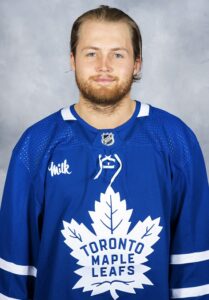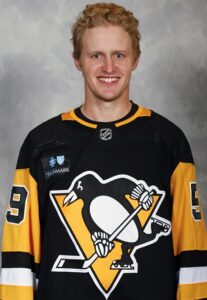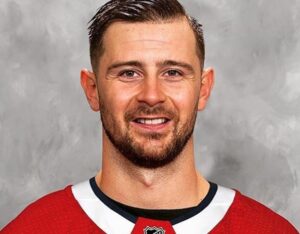Sunday NHL Rumor Roundup – June 18, 2023
Sunday NHL Rumor Roundup – June 18, 2023
The latest on the Leafs, the Devils could shop Yegor Sharangovich and an update on the Oilers in the Sunday NHL Rumor Roundup.
LATEST ON THE LEAFS
TORONTO SUN: Lance Hornby reports Maple Leafs center Auston Matthews is still expected to sign a contract extension. Matthews and his agent met in Arizona this week with Brad Treliving, the Leafs new general manager.
SPORTSNET: Elliotte Friedman reported on Friday that he believes Matthews will re-sign with the Leafs. He felt the club will try to sign him to a maximum eight-year extension though he’s not sure how likely it is that Matthews will agree to a term that long.
Freidman believes there’s a sense of urgency on the Leafs’ part to get this done as soon as possible rather than have negotiations drag on through the summer so as not to adversely affect their long-term plans.
SPECTOR’S NOTE: It’s rumored the Matthews camp envisions a three to five-year deal so the 25-year-old superstar can still cash in on another lucrative contract while he’s still in his playing prime. Either way, his next deal will likely exceed the league-leading $12.6 million average annual value of Colorado’s Nathan MacKinnon.
Hornby also noted there are rumors suggesting the Carolina Hurricanes might trade Brett Pesce if they fail to sign the 28-year-old defenseman to a contract extension.

Toronto Maple Leafs winger William Nylander (NHL Images).
At $4.025 million, Pesce would be a welcome addition to the Leafs blueline but they’d have to trade a salary. Hornby suggested William Nylander, who would play a larger role with the Hurricanes than his current one in Toronto. The 26-year-old winger is a year away from UFA eligibility.
SPECTOR’S NOTE: It’s believed the Hurricanes are intent on signing Pesce but there are rumors that the negotiations got off to a rocky start. It’ll be interesting to see how those talks unfold in the coming weeks.
I’m just spitballing here but I think the Hurricanes would be interested in a Pesce-for-Nylander swap if the Leafs were on board. The Canes have the cap space to take on the winger’s $6.962 million cap hit for next season.
Nylander has a 10-team no-trade clause starting July 1. If the Hurricanes are on that list, this hypothetical deal would have to go down by June 30 unless he’s willing to waive it for Carolina.
In other Leafs news, Hornby believes pending unrestricted free agents Alex Kerfoot and Justin Holl won’t be back. UFA forward Michael Bunting will have to accept a hometown discount to remain with the Leafs.
SPECTOR’S NOTE: Elliotte Friedman believes Bunting has priced himself out of Toronto.
The Leafs would welcome back UFA center Ryan O’Reilly. However, many clubs will look to pay him more than the cap-strapped Leafs.
Hornby mentioned the Leafs could buy out or attempt to trade goaltender Matt Murray.
SPECTOR’S NOTE: The preference would be trading him but they’ll have to package him with a sweetener or retain some of his salary to make it happen. Given his injury history, a buyout before the June 20 deadline wouldn’t be surprising.
THE HOCKEY NEWS: The Leafs reportedly aren’t close to a new contract for pending UFA defenseman Luke Schenn. It’s believed he’s seeking term and no-trade protection in his next deal.
COULD THE DEVILS TRADE SHARANGOVICH?
NEW JERSEY HOCKEY NOW: James Nichols cited Sportsnet’s Elliotte Friedman wondering about whether the Devils could put Yegor Sharangovich on the trade block. The 25-year-old is a restricted free agent coming off a down year of 13 goals and 30 points following a 24-goal, 46-point performance in 2021-22.
Friedman said that he’d heard that “some talks picked up around him”. He indicated that someone told him not to be surprised if something went down here.
COLORADO HOCKEY NOW: Evan Rawal believes the Avalanche could be interested in Sharangovich if he hits the trade block. He pointed out how they’d landed players in the past such as Andre Burakovsky, Devon Toews and Alexandar Georgiev made available by other clubs looking to cut salary or in need of a change of scenery.
SPECTOR’S NOTE: Sharangovich is coming off a two-year deal with an AAV of $2 million. He’d be an affordable pickup for any club seeking a versatile middle-six forward in his mid-twenties with 20-goal ability. The asking price could be a second-round pick.
UPDATE ON THE OILERS
EDMONTON JOURNAL: Kurt Leavins thinks Kailer Yamamoto is in play this offseason. He believes the Oilers want to get an asset in return to clear his contract from their books. A buyout is also a possibility.
Leavins also anticipates that defenseman Cody Ceci will be back next season. He felt Ceci when fully healthy can return to being the player he was a year ago plus his $3.25 million AAV is a good fit for the cap-strapped Oilers.
The Oilers are unlikely to part ways with Philip Broberg. Leavins also dismissed the notion of defenseman Evan Bouchard signing an offer sheet with another club.


